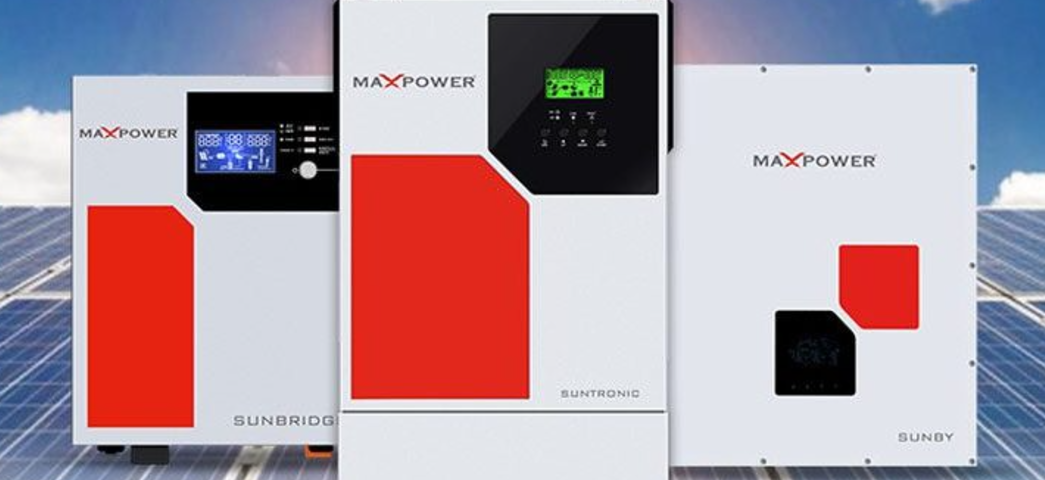
Step-by-Step Guide on How Solar Panels Are Installed
December 4, 2024
Why Are Lithium Batteries Considered the New Big Thing?
December 4, 2024When choosing a solar inverter for your system, one important factor to consider is the level of protection the device offers. Solar inverters come with an IP (Ingress Protection) rating, which indicates how well the inverter is protected against dust, water, and other foreign elements. This blog will discuss the difference between IP21 and IP65 solar inverters and help you understand which is best for your solar setup.
What Does an IP Rating Mean?
Before we dive into the specifics of IP21 and IP65, it’s important to understand what the IP rating means. The IP rating consists of two numbers:
- The first number indicates the level of protection against solids, like dust.
- The second number indicates the level of protection against liquids, such as water.
The higher the number, the greater the protection the inverter offers.
What is IP21?
An IP21 rating means that the inverter is protected against solid objects larger than 12mm in size (like fingers or small tools). It is also protected against vertically falling water droplets, such as rain. However, it is not protected against water splashes or immersion in water.
In simple terms, IP21 solar inverters offer basic protection and are suitable for indoor use in areas with minimal exposure to dust and water.
What is IP65?
On the other hand, an IP65 rating offers much higher protection. The “6” in IP65 means that the inverter is fully protected against dust, meaning no dust can enter the device, ensuring it operates efficiently in dusty environments. The “5” means that the inverter is protected against water jets from any direction, making it highly resistant to rain, splashes, and even powerful water pressure.
IP65 solar inverters are ideal for indoor and outdoor installations. They can withstand harsh weather conditions and protect against dust and water.
Difference Between IP21 and IP65 Solar Inverters
The main difference between IP21 and IP65 solar inverters is their protection level. Let’s break down these differences further:
Protection Against Dust
- IP21: Offers limited protection against dust. It can withstand larger particles but is not completely sealed against finer dust particles.
- IP65 provides complete protection against dust. Dust cannot enter the inverter, which is crucial for systems placed in areas with a lot of dust, such as outdoor environments or areas prone to sandstorms.
Protection Against Water
- IP21: This type of protection offers protection only against vertically falling water droplets, like rain. It cannot withstand splashes or immersion in water.
- IP65: Provides excellent protection against water jets from any direction. It can handle heavy rain, splashes, and high-pressure water, making it perfect for outdoor installations where exposure to water is inevitable.
Suitable Installation Locations
- IP21: Best suited for indoor installations where the inverter will not be exposed to dust or water. It’s ideal for protected environments like homes, offices, or indoor solar setups.
- IP65: Suitable for both indoor and outdoor installations. Whether in an open area exposed to the elements or in an industrial setting with high dust levels, an IP65 inverter offers the durability needed to function properly.
Durability and Longevity
- IP21: While it provides basic protection, it is less durable than IP65. Over time, exposure to dust and water may affect the inverter’s performance and longevity.
- IP65: Offers superior durability and longevity due to its high protection level. This makes it a better choice for long-term use, especially in harsh outdoor conditions.
Cost
- IP21: Because it offers lower protection, IP21 solar inverters are more affordable than IP65 models. They are a good option for users who don’t need protection against dust and water and plan to install their inverters indoors.
- IP65: IP65-rated inverters are more expensive due to their enhanced protection features. However, they are worth the investment for users who need a rugged and reliable inverter for outdoor use.
Which One Should You Choose?
The decision between IP21 and IP65 solar inverters depends on where and how you plan to install the inverter. If you are setting up a solar system indoors, in a relatively clean and dry environment, an IP21 inverter may be sufficient for your needs. However, if you need an inverter that can withstand the elements, handle dust, and work in outdoor settings, then IP65 solar inverters are the better option.
For those living in areas with unpredictable weather, like Pakistan, or places that experience high dust levels, IP65 solar inverters provide the protection and reliability needed to ensure the system continues functioning efficiently.
Read more: Benefits of Solar Energy in Pakistan: A Future Perspective.
Choosing the right solar inverter is crucial for the efficiency and longevity of your solar system. The difference between IP21 and IP65 solar inverters comes from their protection against dust and water. While IP21 inverters are suitable for indoor use, IP65 inverters offer more robust protection and are ideal for indoor and outdoor installations. Suppose you plan to install solar panels in Pakistan, where weather conditions can be harsh. In that case, an IP65 inverter is likely the best choice to ensure your system remains operational for years.
Max Power offers a range of the best IP65 solar inverters in Pakistan to ensure your solar system is protected and performs optimally. Whether you are setting up a new solar system or looking for an upgrade, we are here to help.
Call us today for more information on how we can help you select the perfect inverter for your needs.




